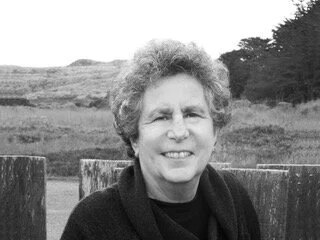Liz Marlow on “Franz Stangl’s Treblinka”
After my chapbook about the Shoah, They Become Stars, was accepted for publication, one of the editors at Slapering Hol Press suggested that I read Gitta Sereny’s book, Into That Darkness. Sereny’s book includes interviews that she had with Franz Stangl (the former commandant of Sobibor and Treblinka), members of his family, and survivors of Treblinka. All the interviews that she had with Stangl occurred while he was in prison for crimes he committed during the Shoah. After reading Into That Darkness, I began reading articles, watching documentaries, and listening to lectures on Treblinka. That is where I got the inspiration for this poem.
There are many aspects of Franz Stangl’s personality that intrigued me, but the most compelling was that despite him overseeing a place where the worst horror occurred, he appeared to show remorse at the end of his life (which was different from the behavior of many other captured Nazi officials). Sereny interviewed him for hours and hours—as she built trust with him, he told her his life story and what happened in Treblinka from his perspective. At the end of the last interview with her, he hung his head in silence and died the next day of a heart attack.
When prisoner rehabilitation comes up in the news, this is where my mind goes. Imagine if people who committed what society labels as “horrific crimes” spoke to people who truly expressed a willingness to listen. Imagine how much of a difference that could make on someone coming to terms with how their actions affected others. It could be a major first step towards a prisoner successfully returning to society after their release.
Therefore, even though this poem describes a scene from an arrogant monster’s perspective, there was also a human deep down in Stangl. His arrogance came from his “success” as commandant of Sobibor and being asked to “clean up” the “mess” of Treblinka. When he first arrived in Treblinka, the camp was a horror scene—the bruised and blackening dead, slowly decomposing into earth, piled not far from the train tracks. The smell of decaying bodies was so intense that witnesses said they could smell it over a mile away. Survivors of Treblinka documented that despite being surrounded by death, he always wore a clean white jacket, which separated him from both the prisoners and uniformed staff at the extermination camp.
The part of Franz Stangl that was not a complete monster was the man who was known to physically abuse only one prisoner (as opposed to his subordinates who abused countless prisoners in horrific ways). He was a man who showed sadness in his face—lines in his skin deepening like the dried earth during a drought—when he discussed the crimes he committed. However, how much of that matters when we write about a Nazi? How much compassion should a writer show towards someone who was responsible for the death of hundreds of thousands of people? How much compassion should a writer show towards someone who admitted to perceiving Treblinka’s victims (innocent women, children, men, and elderly) as “cargo” rather than “individuals” or “humans”? These are questions that I struggle with when I write about him. However, had he not showed the slightest bit of remorse in his interviews, it would not have been possible for me to write a persona poem using his voice.
Regarding the form that I used for the poem, I wanted the poem and its form to convey both chaos and order simultaneously. I imagined Stangl’s thoughts being chaotic at what surrounded him. However, he had to contain them, suppress them, and continue his horrific journey out of fear (whether real or imagined) of retribution for being a broken cog in the Nazi wheel of Treblinka. Therefore, some lines contain extra spacing between words. Those spaces are meant to emphasize pauses, while (like the tall, barbed wire fences of Treblinka) none of the words extend past the parameters of the text box.
I wanted to understand how Stangl became a monster for several reasons. Most importantly, though, if we study how the Shoah occurred and the background of the perpetrators, we might be able to prevent future genocide and/or massive amounts of destruction from occurring again. That is the ideal outcome of writing and reading about the Shoah.




